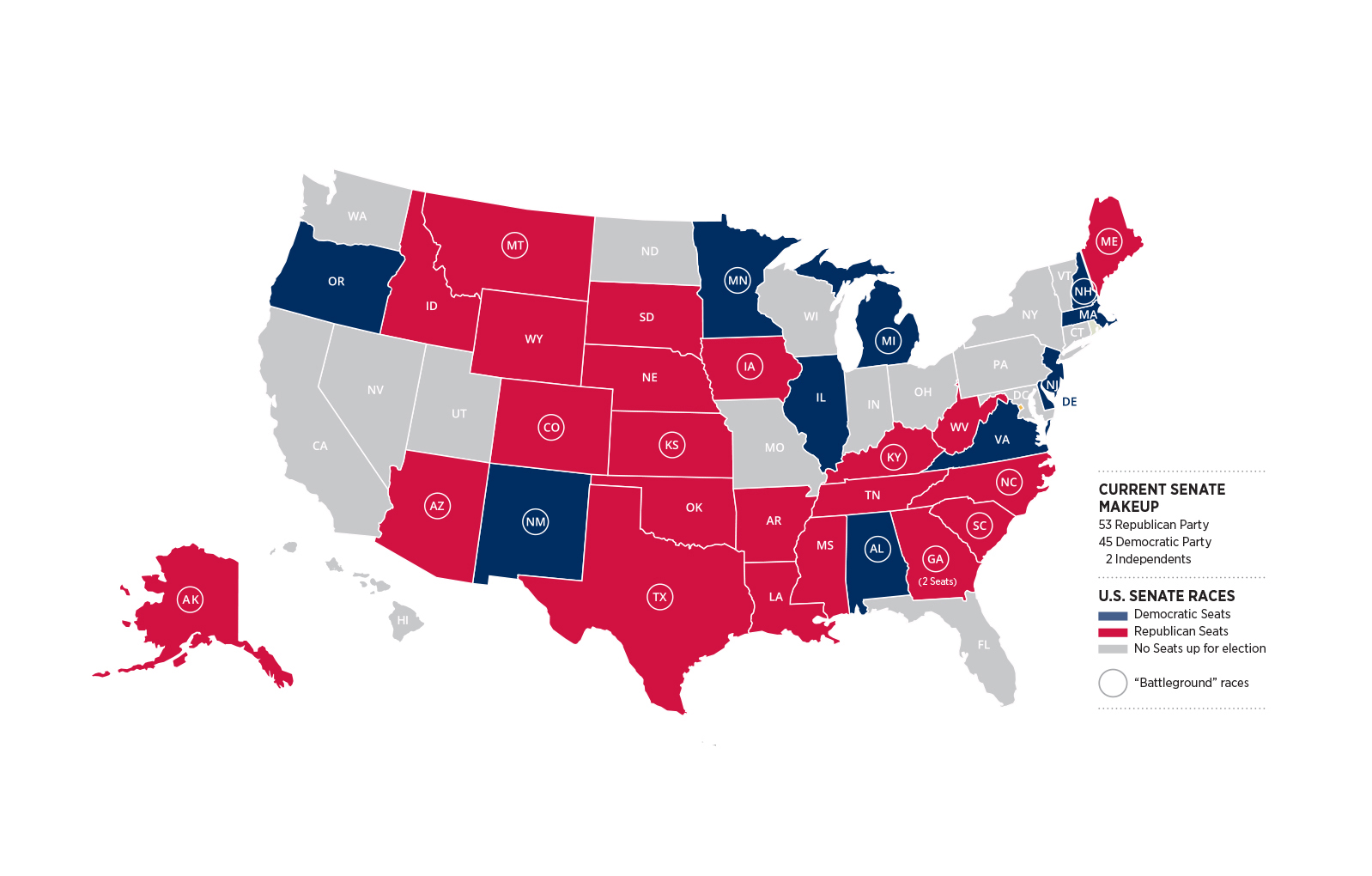The question of who becomes president has far-reaching global implications, many of which are detailed in the articles of this issue. But thanks to the foresight of the nation’s founders to establish a government with a balance of power among its three branches, no president has unchecked authority.
Thus, the choice voters make for the legislative branch of government—the United States Senate and House of Representatives—matters immensely. Without the House and Senate, no law can ever make it to the Oval Office to be signed or vetoed. What’s more, no federal judges, from the district courts to the Supreme Court, are confirmed without the Senate’s approval. And there are dozens of government agencies that, without congressional oversight, could abuse their power.
Closer to home, voters will choose governors, state legislators, mayors, city councils and school boards in races that have bearing on the everyday lives of citizens, either for good or evil. For the youngest kindergarten student to the elderly, elections have consequences.
In 2020:
- 35 Senate races are up for grabs
- 435 House seats are open—the entire chamber
- 11 states will choose governors
- 86 state legislative chambers will hold elections

THE U.S. SENATE
The political website Ballotpedia.org says 18 of the 35 seats up for grabs in the Senate this year are “battleground” races, meaning the races are competitive and the result could be significant for the balance of power among the political parties.
In the 100-member Senate—which confirms or rejects key presidential nominees, including all federal judges—the Republican Party holds a slight edge, with 53 seats to the Democratic Party’s 45, and two independents. Democrats are seeking to turn the Senate in their favor. Since 2017, the GOP-led Senate has confirmed more than 200 of President Trump’s judicial nominees.
THE U.S. HOUSE
With all 435 seats up in the general election, Democrats currently hold 232 to Republicans’ 198, with one Libertarian and four vacant seats. The House GOP has submitted 80 unanimous consent requests this year in order to move the Born-Alive Abortion Survivors Protection Act to the floor for a vote, yet House Democrats have blocked it each time. Additionally, a discharge petition by the GOP, which would force a vote, has thus far fallen short, garnering only three Democrats (of 232) willing to sign it and about 15 signatures shy of succeeding.
REDISTRICTING EFFORTS
At the state level, redistricting for state and federal offices will take place after the 2020 elections. Except in a few cases, the state legislatures will decide how districts for state and federal offices will be divided. This is typically a highly partisan endeavor, with each party seeking an advantage in how a given district is drawn up. Whichever party controls redistricting often has an advantage in elections and, ultimately, which party controls Capitol Hill.
